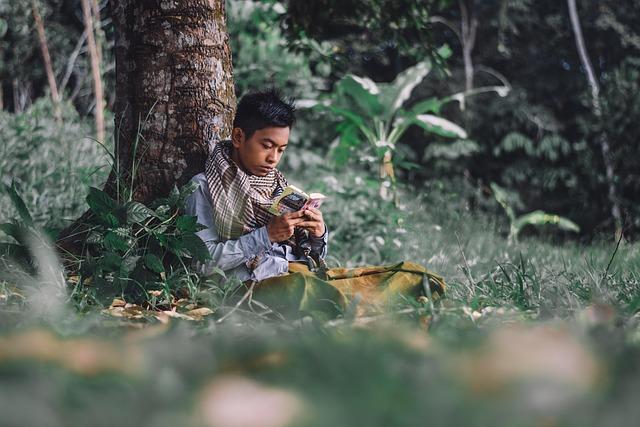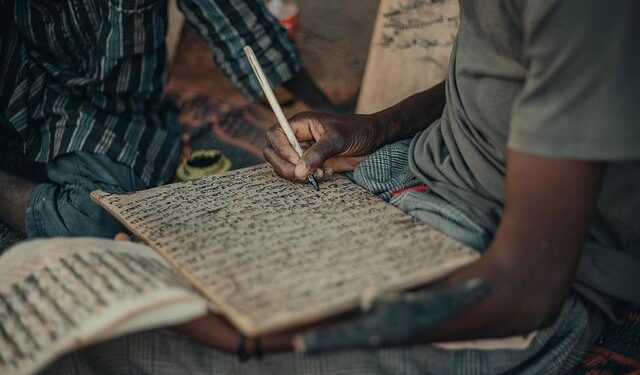In the northern Nigerian state of Kano, a contentious enforcement of religious observance has sparked significant debate and concern. The Islamic police, known locally as the Hisbah, recently conducted a series of arrests targeting individuals perceived to be non-fasting during the holy month of Ramadan. This advancement raises critical questions about religious enforcement, personal freedoms, and the role of state authorities in imposing Islamic laws on citizens. As communities grapple with the implications of such actions, this article delves into the intersection of faith, law, and societal norms in Nigeria’s predominantly Muslim regions, offering insights into the reactions and ramifications of the Hisbah’s controversial crackdown.
Nigerian Islamic Police Crackdown on Non-Fasting Muslims in Kano During Ramadan
The recent enforcement actions by the Hisbah, the Islamic police in Kano, have sparked significant debate over religious adherence and personal freedoms during the holy month of Ramadan. reports indicate that authorities have intensified their efforts to ensure compliance with fasting regulations, leading to numerous arrests of individuals caught eating or drinking in public during daylight hours. The Hisbah has stated that their operations aim to uphold Islamic law, reflecting a broader commitment to foster a more devout community. However, critics argue that this approach not only infringes on personal liberties but also incites fear among non-fasting Muslims and those who may wish to express their beliefs differently.
Community reactions vary, with many supporting the Hisbah’s actions as a way to promote moral standards, while others denounce the police’s heavy-handed tactics. Concerns have been raised regarding the implications for non-Muslims and secular residents, who may feel increasingly marginalized. Observers note that the crackdown highlights ongoing tensions between progressive interpretations of Islam and conservative practices.The balance between faith-based laws and individual rights remains a contentious issue, prompting discussions within the local and international community about the future of religious practices and their enforcement.

The Legal framework: Understanding Sharia Law Implementation in Kano
Sharia law,as implemented in Kano and other states in northern Nigeria,creates a distinct legal landscape that is rooted in Islamic principles. The local enforcement of Sharia has led to the establishment of institutions like the Hisbah,the Islamic police,tasked with ensuring compliance with religious tenets. This framework mandates adherence to practices such as fasting during Ramadan, which holds significant cultural and religious importance. Consequently, Hisbah officers actively monitor public behavior to uphold these religious obligations, resulting in controversial actions, including the arrest of individuals who are not observing the fast. Such measures raise questions about personal freedoms and the intersection of religious law and civil rights.
The legal framework surrounding Sharia also includes provisions that govern morality and social conduct. Offenses under this system can employ a variety of sanctions that reflect customary Islamic jurisprudence, encompassing penalties such as fines, public reprimands, or imprisonment. The local populace often views the enforcement of these laws as a restoration of moral order; however, critics argue that this can lead to abuses and a lack of due process. Understanding the nuances of Sharia law enforcement in Kano reveals a complex tension between societal norms, legal rights, and individual freedoms, marking a significant aspect of the region’s socio-legal dynamics.

Voices from the Ground: Reactions of Residents and Non-Fasting Individuals
As the sun rises during Ramadan, the atmosphere in Kano is charged with the tensions of religious observance and personal choice. Residents have expressed a mixture of fear and solidarity regarding the actions taken by the Islamic police, known locally as the Hisbah. Many non-fasting Muslims report a sense of unease, with some feeling targeted while others stand firmly against the Hisbah’s intrusion into personal liberties. The implications of their enforcement extend beyond mere dietary choices; they challenge societal norms and provoke conversations about the right to practice religion in a way that resonates with individual belief systems.Voices from the community highlight essential points:
- Fear of Repercussions: Several individuals shared stories of harassment and intimidation, suggesting that fear complicates the act of simply going about daily life.
- Hadith Divisions: Some residents believe the Hisbah is overstepping by policing strictly, while others argue that it’s essential to uphold religious values.
- Support for Personal Freedom: A growing number of people are advocating for a more inclusive understanding of Islam that allows for personal interpretation and choice during Ramadan.
In the wake of these arrests, local Muslims are grappling with their identities and theological beliefs. Many are calling for dialog within the community about what it means to be a practicing Muslim in contemporary Nigeria. Questions arise such as whether the enforcement by the Hisbah truly represents the collective beliefs of the community or merely serves a segment of the population. The graphs below illustrate perceptions among Kano residents, emphasizing a divide that may influence future discussions about faith and law.
| Perception | Percentage of Residents |
|---|---|
| support the Hisbah’s Actions | 30% |
| Oppose the Hisbah’s Actions | 60% |
| Unsure/neutral | 10% |

Balancing Faith and Freedom: The Human Rights Implications of Enforcement
The enforcement actions carried out by the Islamic police in Kano during Ramadan raise significant questions about the intersection of religious observance and individual rights. The arrests of non-fasting Muslims highlight a critical tension between maintaining a communal religious identity and respecting personal autonomy. In contexts where religious laws are enacted as civic laws, the implications for freedom of belief become pronounced. The reinforcement of fasting as a communal mandate can be seen as a *breach of personal liberties*, affecting how individuals govern their spiritual choices. This creates a climate of fear for those who may not wish to participate, challenging the essence of tolerance that should ideally underpin a pluralistic society.
moreover, the enforcement of religious practices through punitive measures risks the marginalization of those who hold different beliefs or choose to abstain from fasting for legitimate reasons. the implications for human rights are profound. Rights to *freedom of expression*, *freedom of religion*, and *personal autonomy* are stripped away, creating a society that may intimidate it’s members into compliance rather than fostering sincere faith. The consequences extend beyond individual arrests; they initiate a broader conversation about how societies balance religious observance with basic human rights, and whether enforcement efforts serve to unite communities or deepen divisions.

Path Forward: Recommendations for Dialogue and Policy Adjustments
The recent actions taken by the Islamic police in Kano highlight a critical need for constructive dialogue between authorities and the community. Engaging with local leaders, religious scholars, and civil society organizations can pave the way for better understanding and respect for individual rights, notably concerning personal choices during Ramadan. It is essential to establish forums that encourage open discussions where concerns regarding the enforcement of religious practices can be aired,ensuring all voices are heard.Key recommendations include:
- Facilitating community workshops to educate on the principles of tolerance and coexistence.
- Creating a task force comprising legal experts, religious officials, and human rights advocates to review existing laws and their implementation.
- Promoting public awareness campaigns about the importance of personal freedom in religious observance.
Moreover, policy adjustments that respect both religious beliefs and individual liberties can foster a more harmonious society. Policymakers should consider frameworks that encourage voluntary compliance rather than punitive measures, allowing individuals to practice their faith in ways that are meaningful to them. A proposed framework might include:
| Focus Area | Suggested Action |
|---|---|
| Enforcement Practices | Shift towards advisories and education rather than arrests. |
| Community Engagement | Initiate regular dialogues between police and community representatives. |
| Legal Framework | Review laws to ensure they align with human rights standards. |

The Role of Government and Community in Supporting Religious Observance
The enforcement of religious customs, such as fasting during Ramadan, often brings to light the complex relationship between governmental authority and community practices.In some regions, including Kano, Nigeria, religious police have taken an assertive stance by arresting those who do not adhere to fasting guidelines. This not only raises questions about individual freedoms and rights but also emphasizes the role that *both government and community play in shaping religious observance*. The implications of such actions can be profound, influencing public sentiment and altering local cultural norms regarding faith and its practice.
support for religious observance can take various forms, including community-led initiatives and government policies designed to encourage adherence to religious customs. The following points illustrate how each entity can contribute:
- Education: Promoting awareness of religious obligations through community education programs.
- Supportive Legislation: Governments can support religious practices through policy frameworks that respect the rights of religious groups.
- Community leaders: influential figures can advocate for adherence to religious duties, fostering a culture of compliance and respect.
- Sanctions: Both community and government can enforce norms through informal (community) and formal (legal) consequences for non-compliance.
| Role | Community Contribution | Government Support |
|---|---|---|
| Regulation | Enforcement of community-set norms | Establishment of laws in compliance with religious practices |
| Awareness | Community engagement initiatives | Media campaigns promoting religious observance |
| Support | Providing resources for communal prayers and activities | Funding for religious celebrations and events |
Closing Remarks
the actions of the Nigerian Islamic police in Kano highlight the complex intersection of religious observance, law enforcement, and social norms during the holy month of Ramadan. By arresting individuals who are not participating in the fasting ritual, the authorities are enforcing a stringent interpretation of Islamic practices that reflects local cultural values and religious beliefs. While this enforcement may resonate with some members of the community,it also raises significant questions about personal freedoms,the role of state in religious affairs,and the implications for individuals who do not adhere to specific practices. As the dialogue continues, both within Nigeria and beyond, the balance between religious observance and individual rights remains a critical focal point worth monitoring in the evolving narrative of Islamic practices in Nigeria.















